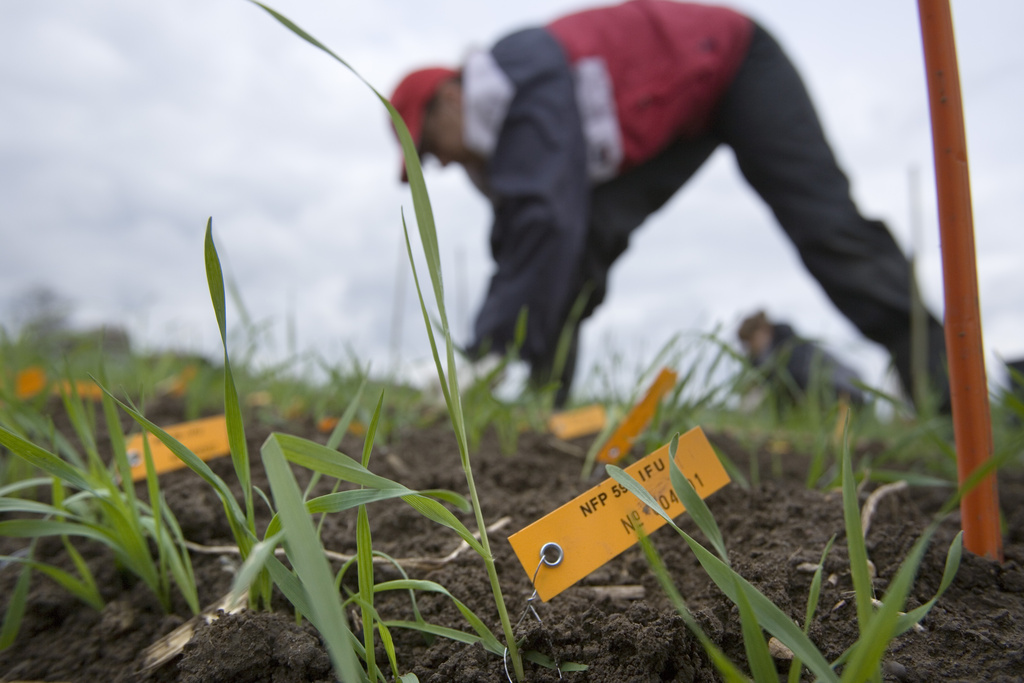Swiss authorities greenlight GM potato trial

The Federal Office for the Environment says scientists can carry out crop trials involving genetically modified (GM) potatoes that are resistant to the vegetable’s biggest threat – blight - at a site near Zurich.
It announced on Tuesday that teams from the Agroscope research centre would be able to start planting the potatoes from next week at its site at Reckenholz, near Zurich. The GM field experiments should run until 2019 at the latest.
Initially they will be planted in a 10m x 20m area, which will be considerably extended next year. The risk that GM pollen may spread is much lower among potatoes than for other species, said scientists at Agroscope.
GM trials remain controversial in Switzerland, however. The field will be protected by security guards, fences and cameras.
In 2008 activists destroyed a GM wheat crop being tested at the Zurich site. A Zurich court acquitted all four people involved in the incident in 2013.
Wrong investment
When Agroscope filed a request to trial the GM potatoes last November, Greenpeace publicly criticised the project, saying research should favour more natural farming methods than those dependent on pesticides or on genetically modified systems.
On Tuesday it repeated their criticism: “Every centime invested in the development of GM food is a badly invested centime.”
Anti-GM group Coordination Stop OGM said well-known Swiss food brands guaranteed non-GM products as the population doesn’t want them: “Limited research funds shouldn’t be invested in trials that offer no solution for Switzerland,” said the group’s president and Green parliamentarian Maja Graf.
The use of GM organisms in plants and animals in Swiss agriculture is currently prohibited by a moratorium that runs until the end of 2017. Most EU member states are free of GM organisms and several have banned them. Europeans oppose GM food by a margin of three to one, according to the 2010 poll. And unlike consumers in the US, Europeans must be told if food they are buying contains as little as 1% from GMOs.
The Zurich scientists aim to develop potatoes that are resistant to blight, which is responsible for major crop losses worldwide. Dutch researchers have already successfully tested similar potatoes. The potato is the third most consumed crop on the planet after wheat and rice, and has become increasingly important in the developing world.

In compliance with the JTI standards
More: SWI swissinfo.ch certified by the Journalism Trust Initiative











You can find an overview of ongoing debates with our journalists here . Please join us!
If you want to start a conversation about a topic raised in this article or want to report factual errors, email us at english@swissinfo.ch.